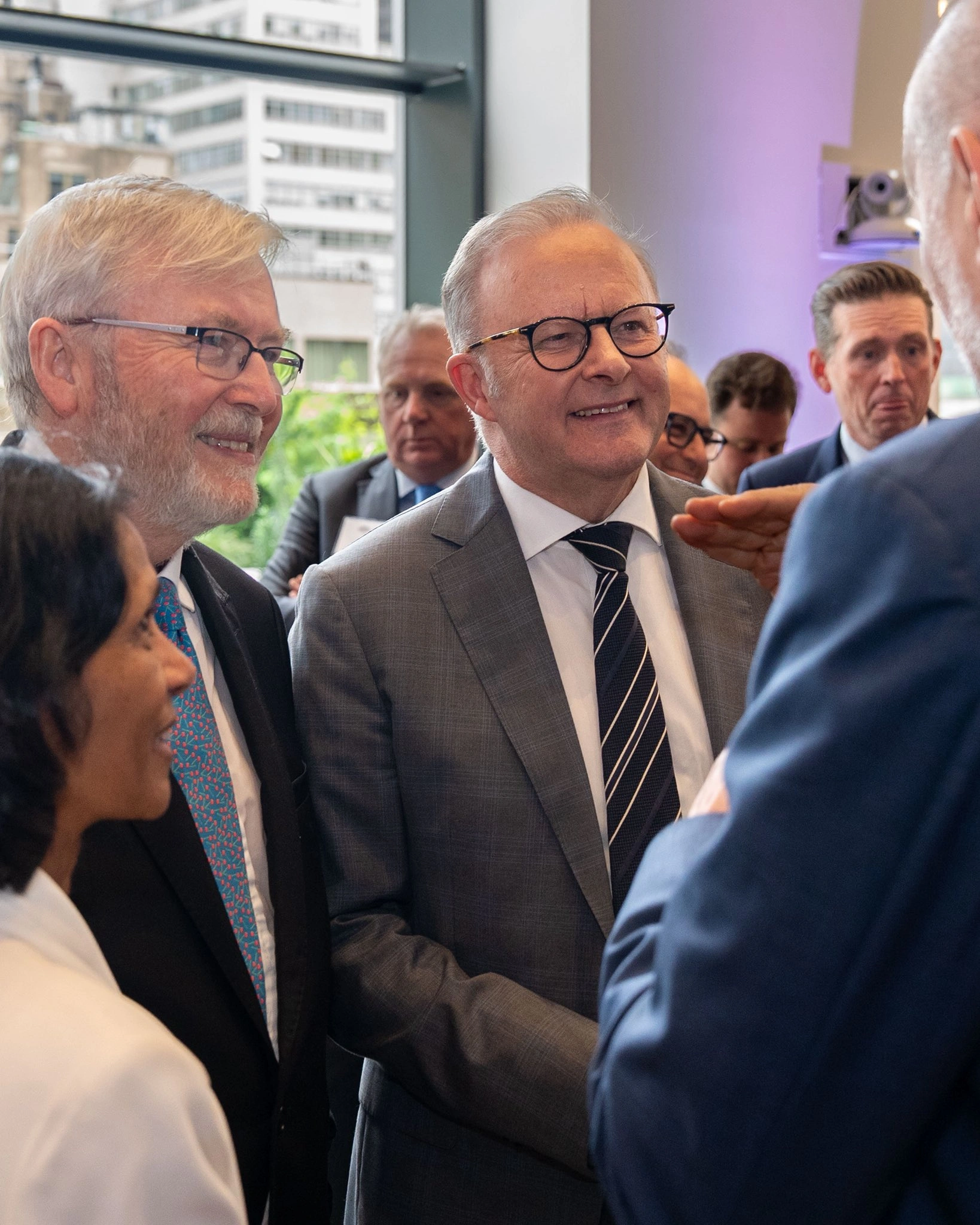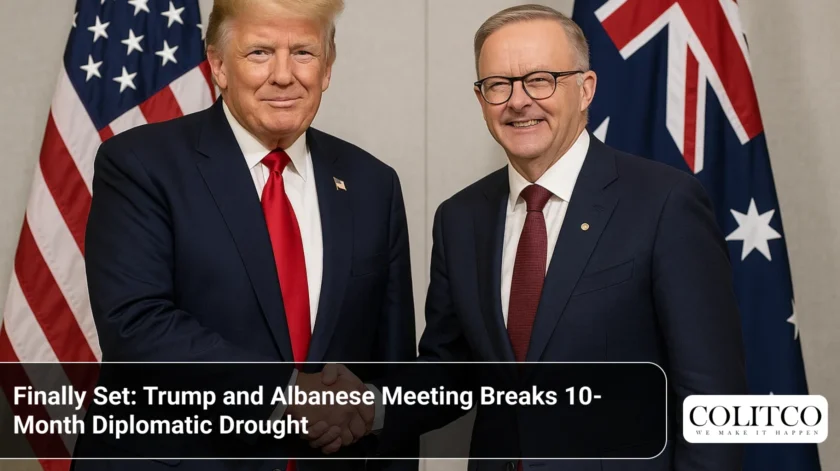The diplomatic wait is over. After nearly 10 months of postponements, false starts, and political pressure, Prime Minister Anthony Albanese will finally sit down with US President Donald Trump on October 20 in Washington.
The White House confirmation comes as relief floods through Canberra, where critics have hammered the government for failing to secure face-time with Australia’s most crucial ally since Trump’s January inauguration.
From Cancelled G7 to Confirmed White House Visit
The breakthrough follows June’s disappointment when their scheduled G7 meeting in Canada evaporated at the last minute. Trump left early to handle escalating Middle East tensions, leaving Albanese empty-handed despite months of preparation.
“Given what is occurring in the Middle East, this is understandable,” a spokesperson for Albanese said at the time. But understanding didn’t soften the political heat back home.
Opposition figures pounced immediately. “It’s not good that over 30 world leaders have had physical, face-to-face meetings with the US president and our Prime Minister hasn’t,” opposition trade spokesman Kevin Hogan said.

PM Anthony Albanese with business leaders from Australia and the United States
The stakes couldn’t be higher. Australia faces punishing tariffs – 50% on steel and aluminium, plus a 10% baseline on all goods. Meanwhile, the $550 billion AUKUS submarine deal hangs in the balance under Pentagon review.
High-Stakes Agenda: AUKUS and Trade Wars
This won’t be a courtesy call. Three critical issues will dominate:
- AUKUS Submarine Deal: The Pentagon is reviewing whether to modify or scrap the trilateral agreement that promises Australia nuclear-powered submarines by the 2030s
- Tariff Relief: Australia seeks exemptions from Trump’s trade war, particularly the crippling steel and aluminium levies hitting $1.5 billion in annual exports
- Alliance Strength: Broader questions about America’s commitment to Indo-Pacific security as China’s influence grows
The decision by US President Donald Trump not to exempt Australia from his latest round of tariffs has sent shockwaves through diplomatic circles in both Washington and Sydney.
The AUKUS complications run deeper than anyone anticipated. New US tariffs on steel and aluminium could delay delivery and increase the cost of nuclear submarines promised to Australia under the Aukus pact, with analysts warning of rising scepticism about the trilateral defence deal.
Phone Calls Aren’t Enough Anymore
The Prime Minister has maintained that four phone conversations with Trump proved sufficient. But as international pressure mounts, personal diplomacy matters more than ever.
“It’s been 300 days now since President Trump has was elected, and still no meeting between our leaders, and that’s a concern,” opposition critics noted.
Even Trump seemed eager for the meeting. In attacking ABC correspondent John Lyons last week, the President mentioned: “Your leader is coming over to see me very soon. I’m going to tell him about you.”
The snub during this week’s UN General Assembly only intensified scrutiny. While Trump met with leaders from Ukraine, Argentina, Egypt, Pakistan and Turkey, Australia remained absent from his official schedule.
Economic Stakes Beyond Politics
Australia’s mining sector – the backbone of the economy – faces real challenges from these trade tensions. Recent analysis shows declining mining earnings already hit the federal budget with a $100 billion downgrade.
Energy costs continue pressuring the sector’s competitiveness. BHP CEO Mike Henry recently warned that Australian electricity prices run 50-100% higher than US rates, threatening investment flows.
The tariff dispute adds another layer of complexity for an industry already navigating global supply chain disruptions.
October Pressure Test
This Washington meeting represents far more than diplomatic protocol. It’s a pressure test for the US-Australia alliance under Trump’s “America First” doctrine.
Albanese acknowledged the stakes: “We have a good relationship. We’ve had respectful calls. Australia and the United States are great partners. I expect it to be very constructive.”
But expectations remain tempered. Former Prime Minister Malcolm Turnbull offered a reality check: “Do not be misled by the idea that there’s any altruism in Washington towards Australia. Australians love to delude themselves to this.”
Global Context Matters
The meeting occurs against a backdrop of unprecedented global tensions. China’s dominance in critical minerals processing continues growing, while Australia positions itself as an alternative supplier for Western allies.
Australia’s gold output recently hit 300 tonnes, ranking as the nation’s fourth-largest export. Such production capabilities matter increasingly in an uncertain global economy.
The President’s UN address this week revealed his priorities. He condemned climate policies as a “green scam” while Australia remains committed to net-zero targets and critical mineral development.
Also Read: Sydney’s Railway Roulette: How Australia’s Busiest Network Became a Commuter Nightmare
Final Thoughts
The October 20 meeting finally gives both leaders chance to reset a relationship strained by trade disputes and delayed diplomacy. Whether it produces concrete outcomes or merely diplomatic pleasantries remains to be seen.
With global tensions rising and economic stakes mounting, this long-awaited encounter could define Australia-US relations for years to come.
FAQs
Q: Why did it take 10 months to arrange this meeting?
A: The G7 meeting was cancelled due to Middle East tensions, and Trump’s busy UN schedule excluded Australia this week, leading to the standalone Washington visit.
Q: What will they discuss?
A: AUKUS submarine deal, US tariffs on Australian goods, and broader alliance cooperation in the Indo-Pacific.
Q: How do tariffs affect AUKUS submarines?
A: Steel and aluminium tariffs could increase submarine construction costs and delay delivery, as about one-third of materials come from allies now facing levies.
Q: Will Australia get tariff exemptions?
A: Unknown. The UK secured partial relief, but Australia’s requests have been unsuccessful so far.












